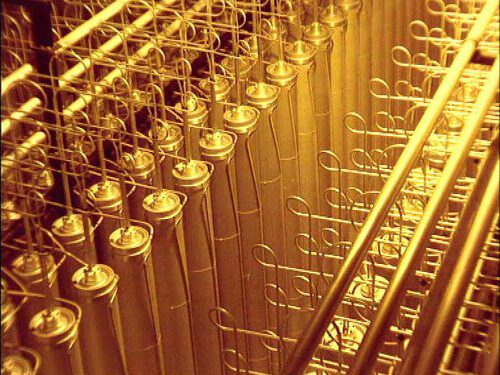Amid overstretched electrical networks, security threats, climate-related issues, and rising geopolitical strains involving the US, Russia, and China, achieving energy self-sufficiency in the United States has never been more essential.
To accomplish this objective, many advocate a transition from fossil fuels towards nuclear energy, with numerous companies actively developing advanced reactors. Yet, these organizations encounter a new obstacle: the challenge of sourcing nuclear fuel for their reactors. LIS Technologies Inc., a laser uranium enrichment enterprise based in the US, may hold the key to this dilemma.
LIS Technologies was founded by two specialists in nuclear technology and uranium enrichment. The Chief Technology Officer, Dr. Jeff W. Eerkens, is a distinguished nuclear engineer referred to as the “Father of Laser Enrichment,” boasting six decades of experience. Meanwhile, Christo J. Liebenberg, a laser expert with over 30 years of experience across three continents, serves as the CEO of LIS Technologies.
While many are aware of the fundamental principles of nuclear energy, knowledge about nuclear fuel is less widespread. Nuclear reactors—the machinery that ultimately generates nuclear energy—operate on uranium. However, natural uranium possesses a very low proportion of U-235, a specific isotope of uranium. To effectively fuel a nuclear reactor, uranium requires a higher level of U-235 than what exists in nature.
Uranium enrichment is a process intended to increase the concentration of U-235 in uranium, transforming it into a viable fuel for nuclear reactors. LIS Technologies employs lasers to selectively excite and segregate U-235, thereby enriching natural uranium for future supply to US-based nuclear reactors. But why is this technology vital? And more importantly, why is it critical now?
Liebenberg clarifies that LIS Technologies is reintroducing a technology (CRISLA) that was showcased in the early 1990s but was abruptly stopped at that time when the US opted for imported enriched uranium. “Russia became a major supplier of enriched uranium, and after the fall of the Iron Curtain, they began to flood global markets needing to enhance their economy,” he explains. “They sold enriched uranium at less than half the price it used to be, which undermined numerous technologies. Consequently, the entire US nuclear industry faced stagnation. It severely impacted the US nuclear sector.”
This shift was not insignificant. “At one point, we were the leading global exporters of nuclear fuel and services,” he continues. “Now, we’ve turned into the world’s largest importer.”
Liebenberg emphasizes that his enterprise is not creating new technology but rather enhancing the already established CRISLA technology, initially conceived and showcased by Dr. Jeff Eerkens in the 1980s and early 90s, which led to a US patent filed in 2019. The mission of the company arrives at a crucial juncture. With rising geopolitical tensions and US sanctions against Russia, reinstating domestic nuclear fuel production has emerged as a national security imperative. As of May 2024, the US prohibited importing nuclear fuel from Russia, a ban aimed at safeguarding American interests, yet it has posed challenges for scientists working on next-generation nuclear reactors, which require fuel to operate, especially as the US has depended for decades on imported fuel that suddenly has become limited.
“Faced with this kind of shortage, there’s a bottleneck,” Liebenberg asserts. “None of the small modular reactor (SMR) or microreactor companies have any clarity on where they will source their advanced fuel. They are investing in billion-dollar reactors, yet their biggest risk lies in securing the availability of HALEU (high assay low enriched uranium), which can be enriched up to 19.75%. The CRISLA technology is perfectly positioned to manufacture HALEU fuel, and LIS Technologies Inc is the entity dedicated to moving this technology into production in the 2030s and beyond.”
Enriched uranium could bolster domestic advancements in nuclear energy. Nevertheless, observers might question whether this technology could give rise to nuclear weapon development. The answer is affirmative, yet Liebenberg insists that LIS Technologies will not engage in such areas and is ensuring close collaboration with government bodies to safeguard the technology.
“We’re not aiming for enrichment levels above 20% due to proliferation risks,” he asserts. “That’s not part of our strategy. Instead, we are focusing on creating nuclear fuel for peaceful purposes.”
Naturally, if the processes and proprietary techniques used by the company become widely known, malicious parties might exploit them for nefarious ends. “Our goal is to strictly pursue peaceful applications; however, if this technology is leaked, it could be potentially misused by foreign actors for harmful purposes. Therefore, it is imperative that we protect this technology.” Liebenberg mentions that the technology will be classified to prevent it from falling into inappropriate hands, and that LIS Technologies is dedicated to restoring US energy independence.


